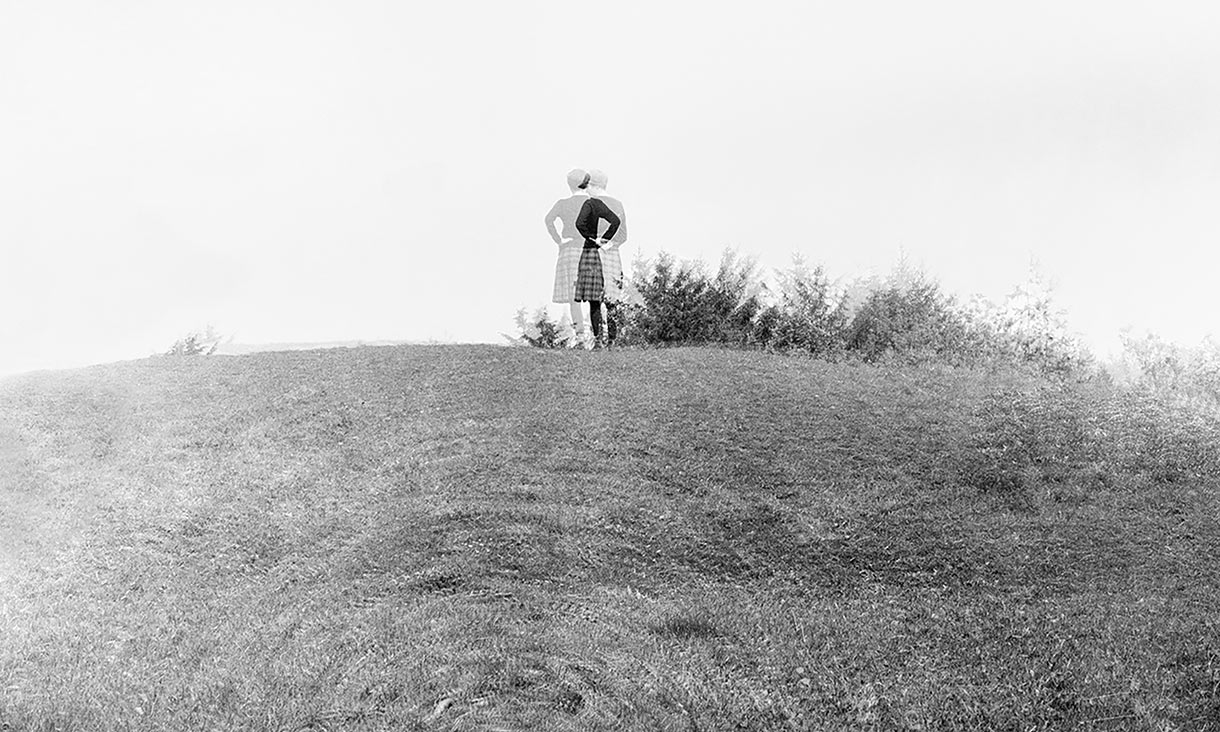First Site Gallery and PHOTO 2022 present 'Dark Room Encounters' featuring the work of Alice Duncan, Lesley Turnbull, and Ciaran Begley. Spanning photography, moving image and sculpture, this exhibition draws upon land and time to explore the intersections between ecology, identity politics and place.
26 Apr to 20 May 2022
Opening night: 5.30-7.30pm, Tuesday 3 May 2022. Free. RSVPs essential via EventBrite.
First Site Gallery, Basement/344 Swanston St, Melbourne VIC 3000 (view map location).
 Lesley Turnbull, 'Untitled #1' 2020. Black and white photographic print on archival cotton rag. Courtesy the artist.
Lesley Turnbull, 'Untitled #1' 2020. Black and white photographic print on archival cotton rag. Courtesy the artist.
Dark Room Encounters is a group exhibition of artists exploring relationships to self, place and site through light-based practices, image-making, and sculpture. In light of ongoing local and global events, the works transform the gallery space into a site of refraction and reflection - asking the viewer to reconsider how they interact within the world around them.
The three artists in Darkroom Encounters are brought together from seemingly disparate, yet pertinent, practices. Images of [re]constructed past selves sit alongside images of proposed futures, as well as light-based projections that refresh themselves in the present. These works are interwoven with three-dimensional sculptural objects feature on the floor of the gallery – are these guides or obstacles?
This exhibition attempts to underscore the nuanced complexities of collectively living on colonised land. Combining digital and analogue imaging techniques, Darkroom Encounters invites audiences through multi-layered encounters with artworks that purpose a place where embodied views intersect- and new perspectives emerge.
Artist bios
Lesley is a Scottish person based in Naarm whose research art practice fuses the personal and the political to explore place, space, and displacement through a queer lens.
Alice Duncan’s takes a multifaceted approach to her practice - mediating between science, archaeology and photography to explore the ways in which these disciplines describe the world. Her recent work utilises an expanded photographic practice to excavate the histories and possible narratives that surround specific sites and landscapes. Moving between digital, analogue and sculptural photographic practices, Alice draws parallels between photography and geology to address the past within the present Australian landscape. Her practice explores the deep past as a living heritage and recognizes the possibilities and responsibilities it generates.
For Dark Room Encounters, Ciaran Begley is presenting a series of lens-based interventions. Begley’s work uses lenses to focus the light from lightbulbs to generate images of themselves in real time. Presenting these works in a gallery environment aims to alter perceptions of light as a mechanism for psychological transformation. Ciaran Begley was born in Hawaii, raised in New Zealand and lives in Melbourne. Having exhibited in the UK, New Zealand, Sydney and Melbourne; Begley's installation works explore physical forces such as gravity, light and heat to explore physical experiences that cling to aesthetic concerns.
